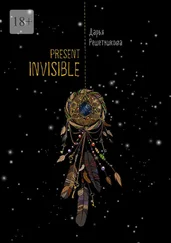Lene Kaaberbol - Invisible Murder
Здесь есть возможность читать онлайн «Lene Kaaberbol - Invisible Murder» весь текст электронной книги совершенно бесплатно (целиком полную версию без сокращений). В некоторых случаях можно слушать аудио, скачать через торрент в формате fb2 и присутствует краткое содержание. Год выпуска: 2012, ISBN: 2012, Издательство: Soho Crime, Жанр: Старинная литература, на английском языке. Описание произведения, (предисловие) а так же отзывы посетителей доступны на портале библиотеки ЛибКат.
- Название:Invisible Murder
- Автор:
- Издательство:Soho Crime
- Жанр:
- Год:2012
- ISBN:9781616951719
- Рейтинг книги:5 / 5. Голосов: 1
-
Избранное:Добавить в избранное
- Отзывы:
-
Ваша оценка:
- 100
- 1
- 2
- 3
- 4
- 5
Invisible Murder: краткое содержание, описание и аннотация
Предлагаем к чтению аннотацию, описание, краткое содержание или предисловие (зависит от того, что написал сам автор книги «Invisible Murder»). Если вы не нашли необходимую информацию о книге — напишите в комментариях, мы постараемся отыскать её.
Invisible Murder — читать онлайн бесплатно полную книгу (весь текст) целиком
Ниже представлен текст книги, разбитый по страницам. Система сохранения места последней прочитанной страницы, позволяет с удобством читать онлайн бесплатно книгу «Invisible Murder», без необходимости каждый раз заново искать на чём Вы остановились. Поставьте закладку, и сможете в любой момент перейти на страницу, на которой закончили чтение.
Интервал:
Закладка:
“And what else? Have you heard anything from the lab?”
Magnus nodded, visibly relieved at the change in topic.
“Some of the results came back, and they’re looking at them now. They’ll let you know as soon as possible, and apparently there’s also a team from the radiology department on its way up. I guess they’re not wild about the idea of moving you around right now.”
No, they didn’t want her potentially plague-inducing bacteria to contaminate the entire hospital. Nina knew the drill. They would X-Ray her thorax to assess the state of her lungs. Maybe there were signs of some kind of infection in the tests they had already done. “Have you seen my numbers?”
Nina tried to pull herself together as much as she could and give Magnus an authoritative look. The feeling of being cut off from the information that was available to her doctor made her fidgety.
“Your infection counts look a little suspect,” Magnus said, sitting down next to the bed. “They did a differential count, and your lymphocyte numbers look odd. They’re coming to ask you a few questions again in a half hour. I’m going to hang around until then.”
Nina sank back in the bed. A half hour didn’t give her enough time to sleep but was too long to stay awake. The nausea kept churning in her stomach, and small, flashing spots danced up over the white ceiling. And then it seemed she was, after all, able to fall asleep; the last thing she was aware of was Magnus’s heavy, dry bear paw on her forehead, cautiously stroking her hair.
S HE WOKE UPbecause someone was shouting. It was a woman, and her voice was high with surprise. Nina opened her eyes, her head still pounding, and looked at the clock over the door. 6:24 A.M. Everything was a little blurry. But it must still be morning, and there was a cluster of toxic-yellow gowns converging around her.
“Nina.”
Magnus’s voice sounded like he was standing on the other side of the room, but she saw him right beside her bed and moving in closer to bend over her.
“Nina. You’re going to have to wake up, sweetheart.”
She sat up too fast and felt a flood of vomit forcing its way up her throat. Someone held a basin for her, while Magnus patiently waited. When she was done, she looked up and met his eyes.
“There was a blip on the radiology nurse’s dosimeter.”
Nina shook her head. It was like Magnus was starting to slip out of focus again. What he was saying didn’t make any sense.
“You’ve been exposed to radiation, Nina. You have radiation sickness.”
 HERE WAS FRENETICactivity in Nina’s room. At least three doctors, each with an entourage of medical students, had been by over the course of the morning, and they had all looked at her with a mixture of concern and professional excitement. The team from the Danish National Institute of Radiation Hygiene in particular had a hard time hiding their enthusiasm as they filled out their paperwork, consulted, and issued instructions for the rank-and-file staff. Nina saw it happening, but didn’t have the strength to get worked up over it. She recognized their response. Professionals were always fascinated to encounter in real life things they had only read about in books. She was probably one of the few patients—if any—with radiation sickness they had ever seen, and she could hear their whispered, animated discussions out in the corridor. If she hadn’t been feeling so dreadful, she would probably have been just as curious, but she had other things to worry about.
HERE WAS FRENETICactivity in Nina’s room. At least three doctors, each with an entourage of medical students, had been by over the course of the morning, and they had all looked at her with a mixture of concern and professional excitement. The team from the Danish National Institute of Radiation Hygiene in particular had a hard time hiding their enthusiasm as they filled out their paperwork, consulted, and issued instructions for the rank-and-file staff. Nina saw it happening, but didn’t have the strength to get worked up over it. She recognized their response. Professionals were always fascinated to encounter in real life things they had only read about in books. She was probably one of the few patients—if any—with radiation sickness they had ever seen, and she could hear their whispered, animated discussions out in the corridor. If she hadn’t been feeling so dreadful, she would probably have been just as curious, but she had other things to worry about.
It was a relief to be able to see people’s faces again. The staff no longer wore face masks—you couldn’t catch radiation sickness through inhalation.
An investigator from the Danish Emergency Management Agency had already been there at 7:40 A.M. He was middle-aged, short, and balding and had smiled politely as he opened his bag and took out a pad of paper and a pen. Then, without warning, he had launched into his barrage of questions.
Where had she been, who had she talked to, what had she seen?
She answered as best she could. She had told the hospital staff about the repair shop right away, and the Emergency Management Agency was presumably already turning the place upside down. She had every possible reason to cooperate. The boy was receiving treatment now, but the rest of the residents from the Valby garage had potentially been exposed to amounts of radiation that were just as serious as her own exposure, and they would have to be examined. Beyond that, of course there were other and very obvious reasons the Emergency Management Agency had turned up less than half an hour after the radiology team’s dosimeter had started beeping. A source of radiation in central Copenhagen must be Nightmare Scenario Number One for the PET, the police, and the Emergency Management Agency.
The man’s ballpoint pen scribbled things down on paper at a furious pace as Nina responded to his questions. Beyond her own address, he also asked for Peter’s and that of the Coal-House Camp.
“As far as I can tell,” she said, “everyone who got sick was down in the inspection pit, either briefly or for perhaps as long as an hour at a time. Maybe that’s where it came from?”
“Yes,” he said, with a single quick nod. “That’s what our people at the site reported. The radiation level down there is significant, and they found small amounts of radioactive sand.”
She remembered the feeling of small, sharp grains of sand digging into her skin, and instinctively rubbed her palms on the sheet, as if to brush them off. Her hour-long hunt for a possible source of poisoning, the cleanup she had done with such determination—it had all been in vain. Radioactivity. While she had been removing plastic bags, moldy cardboard, and old oil drums, there had been an invisible, imperceptible enemy down there the whole time.
“Where did it come from?” she asked.
“The main source had been removed by the time we arrived,” he said. “We can only speculate.” Then he started cross-examining her about the residents of the garage. She patiently listed everyone she had spoken to, but that wasn’t that many, and she hadn’t taken their names or collected any other useful information while she’d been there. The man smiled at her with a trace of contempt.
“A lot of things would have been easier if you had informed the authorities about the outbreak of a suspicious illness right away,” he said and started packing up his things. “Sometimes you need to think with your brain instead of your heart.”
Nina didn’t answer but sank back in the bed, silently fuming. There hadn’t been anything particularly suspicious about the outbreak until she herself had fallen ill, and as for the Danish authorities’ response to a group of Roma in Valby, not much thinking was likely to have been involved—with their brains or their hearts. Their Pavlovian reaction would have sent the whole lot back across the border, to scatter themselves and their contaminated luggage across half of Europe. Still, he had touched a nerve. How much radiation had they been exposed to? And what about her?
She threw up again, and there was no sign she was improving. They were treating her with a drug called ferric ferrocyanide, more commonly known as Prussian Blue, which was supposed to bind to any unabsorbed radioactive material inside her, which of course she was totally in favor of. The only snag was that it had to be administered through a thin, plastic tube that was inserted through one of her nostrils and then fed all the way down to her duodenum “to prevent any irritation of the stomach lining.” She could certainly have done without the effect the tube had on her already hypersensitive gag reflex.
Читать дальшеИнтервал:
Закладка:
Похожие книги на «Invisible Murder»
Представляем Вашему вниманию похожие книги на «Invisible Murder» списком для выбора. Мы отобрали схожую по названию и смыслу литературу в надежде предоставить читателям больше вариантов отыскать новые, интересные, ещё непрочитанные произведения.
Обсуждение, отзывы о книге «Invisible Murder» и просто собственные мнения читателей. Оставьте ваши комментарии, напишите, что Вы думаете о произведении, его смысле или главных героях. Укажите что конкретно понравилось, а что нет, и почему Вы так считаете.












